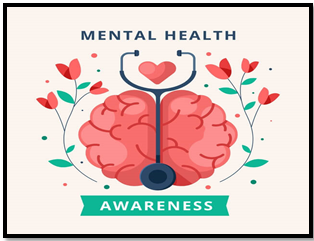THE PROLIFERATION OF UNQUALIFIED MENTAL HEALTH ADVICE ON SOCIAL MEDIA
Syllabus:
- GS-3- Mental health , Awareness , impact on children ,women , Impact of COVID-19 on mental health, impact of social media.
Focus :
- The article focuses on the alarming rise of unqualified mental health advice on social media, highlighting the dangers of relying on non-professionals for mental health support. It underscores the need for regulatory measures and increased public awareness to ensure safe and effective mental health care.
Source - ET
Introduction
- Apoorva Mittal explores the concerning rise of unqualified mental health advice on social media.
- Case study of Shoran Kumar, a 21-year-old engineering student from Meerut, who experienced persistent headaches, anxiety, and disinterest in life, seeking solace in social media.
The Appeal of Social Media Solutions
- Social media platforms like Instagram have become a refuge for those seeking mental health support due to their accessibility.
- Accounts offering unqualified advice on mental health have proliferated, appealing to individuals like Kumar who are looking for quick fixes.
The Rise of Unqualified Mental Health Practitioners
- Many social media influencers offering mental health advice lack formal qualifications.
- Example: Hemant Mahajan’s “Happy Living” program, which promised to cure anxiety in 20 days, attracted Kumar.
- Mahajan’s program claimed success without medications and offered a refund policy, which later proved difficult to claim.
The Psychological Impact of COVID-19
- The pandemic exacerbated mental health issues, leading to increased stress and anxiety.
- The demand for mental health support surged, but qualified professionals were scarce.
- India’s ratio of mental health professionals to the population is critically low: 0.3 psychiatrists and 0.07 psychologists per 100,000 people.
Social Stigma and Accessibility Issues
- Social stigma around mental health prevents many from seeking professional help.
- Financial constraints and difficulty in accessing affordable care also contribute to the reliance on unqualified advice.
- Therapy sessions are costly, averaging 1,000-4,500 INR in metros and 700-1,000 INR in non-metros.
The Dark Side of Social Media Advice
- Kumar’s experience with Mahajan’s program was negative; he was pressured to borrow money and attend ineffective sessions.
- When seeking a refund, Kumar faced resistance and was blamed for not “surrendering to the exercises.”
The Dangers of Unqualified Advice
- Unqualified practitioners often use non-evidence-based techniques, such as Neuro-Linguistic Programming (NLP), which can be ineffective or harmful.
- Qualified experts stress the importance of proper diagnosis and evidence-based treatments for anxiety and other mental health disorders.
Legitimate vs. Unqualified Influencers
- Some social media accounts are run by qualified professionals who provide valuable and destigmatizing content.
- However, there is a significant presence of unqualified “life coaches” and influencers offering questionable solutions.
- Example: Alok Tank, a marketer with no psychology background, offers stress management advice based on personal experiences.
Regulatory Challenges
- The lack of regulation allows unqualified practitioners to operate freely on social media.
- The blurring of boundaries between mental health professionals and life coaches complicates the issue.
- Experts call for clearer guidelines and regulations to protect individuals seeking mental health support online.
Case Study: Raj and the Google Ad
- Nikita Sharma, a psychologist in Bengaluru, shares the story of her cousin Raj, who was misled by a Google ad for an unqualified practitioner.
- The practitioner, claiming to be a clinical psychologist, prescribed medication illegally.
The Need for a Unified Regulatory Body
- India’s current regulatory framework for psychology is fragmented, with different standards and oversight bodies.
- Experts advocate for a unified council to govern, monitor, and issue licenses for all psychology professionals.
Recommendations for Social Media Platforms
- Social media platforms need to implement stricter policies to monitor and regulate accounts offering mental health advice.
- Influencers should prominently display their qualifications and registration details in all content.
Conclusion
- While social media has the potential to spread mental health awareness and support, the proliferation of unqualified advice is a serious concern.
- Individuals must be educated on how to discern credible sources and seek appropriate professional help.
- Regulatory bodies and social media platforms need to collaborate to ensure the safety and well-being of those seeking mental health support online.
Mains UPSC Question
- Discuss the impact of unqualified mental health advice on social media platforms. How can regulatory frameworks and public awareness mitigate the potential harm caused by these unregulated practitioners?(250 words)
Source:The Economic times
Associated article
https://universalinstitutions.com/mental-health-and-the-floundering-informal-worker/




